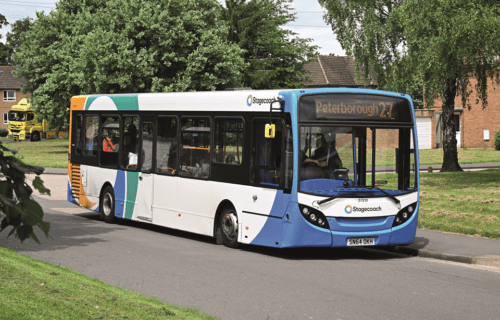
The local authority believes that a franchising approach will deliver its aims better than an Enhanced Partnership
Residents are being invited to have their say following a meeting of the Cambridgeshire and Peterborough Combined Authority Board which discussed a report about bus reform and the potential pathways for improving bus services in the region. Following the discussion, members of the Board approved the Authority’s Bus Reform Assessment and have agreed to hold a formal franchising consultation which will enable residents, businesses, stakeholders and statutory consultees to share their views.
An assessment of the region’s transport needs was carried out by independent transport consultant ITP and outlines two possible approaches in its feasibility study and outline business case assessment for bus reform; a franchising solution and an Enhanced Partnership (EP).
Franchising also allows the Combined Authority to deliver its strategic objectives, according to the Bus Reform Assessment; to have full influence over outcomes and the efficient delivery of bus service improvements to passengers and bus network changes. The EP is less likely to deliver the strategic outcomes, according to the Authority, as it leaves key decisions around the network in the hands of bus operators, with any outcomes subject to negotiations with operators.
The franchising consultation will take place online and in person over 14 weeks from August until November. It will serve to inform a decision by the Mayor of Cambridgeshire and Peterborough on whether to introduce bus franchising in the area.
Chief Executive of the Combined Authority Rob Bridge said: “We recognise just how important buses are as part of our wider transport and connectivity plans, which is why we believe the way the region’s buses are run needs to change. We want to address the current challenges, which include the performance of local bus services. I would like to encourage everyone to get involved in the consultation. We are especially keen to hear from those who rely on the bus to get from A to B and those who would benefit from the bus in the future for their education, employment and leisure transport needs.”

